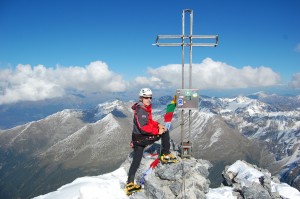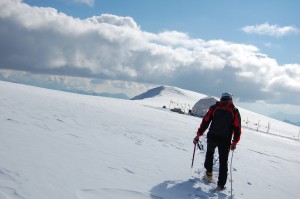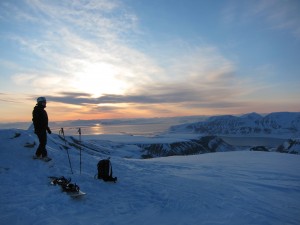 I like to contrast caves and their dark development to the extraordinary environments above them such as remote mountains, glaciers, deserts, unspoiled forests, and major cities like Napels as well as incredible islands like Sardinia, lying in the middle of Mediterranean sea.
I like to contrast caves and their dark development to the extraordinary environments above them such as remote mountains, glaciers, deserts, unspoiled forests, and major cities like Napels as well as incredible islands like Sardinia, lying in the middle of Mediterranean sea.
I like the contrast between the darkness inside and the light outside, the pleasures of problem solving and discoveries that belong so deeply to the medical practice and medical research. As a physician, I was fascinated early on by the challenge of making clinical decisions in an evidence-based manner on mountains and under them. Lack of data make these environments a particularly difficult area to operate in.
 I soon faced the problem of practicing medicine and its instruments in extremely adverse environmental, topographical, and logistical conditions where the human body reacts to the thin air, cold and darkness.
I soon faced the problem of practicing medicine and its instruments in extremely adverse environmental, topographical, and logistical conditions where the human body reacts to the thin air, cold and darkness.
My job is to try to find answers to these issues, in collaboration with other emergency physicians at CNSAS, of which I am a member and for the International Commission of Mountain Emergency Medicine (ICAR MEDCOM).
I am vice director of the EURAC Institute of Mountain Emergency Medicine of Bolzano, Italy, an institution aiming to improve the diagnosis and treatment of casualties and acutely ill patients in mountainous regions by raising the standard of alpine emergency medicine to an internationally recognized evidence-based discipline.
 The chance to take part in the world of training for space exploration missions in ESA’s CAVES course offered another approach to isolation, teamwork and limited resources issues for clinical and research purposes.
The chance to take part in the world of training for space exploration missions in ESA’s CAVES course offered another approach to isolation, teamwork and limited resources issues for clinical and research purposes.
Recognising human health concerns are a pressing issue for all types of exploration. Another major problem arises when conducting scientific research on space missions and before getting a patient to a hospital. Frozen equipment or a discharged battery can make all the difference!
Supporting CAVES as a medical doctor in charge of first-intervention and patient stabilisation I hope to help in improving the quality of human skills and data collection. These are of paramount importance to provide better insight into various aspects during a mission on the International Space Station and for future space exploration missions.
Giacomo Strapazzon

Discussion: no comments